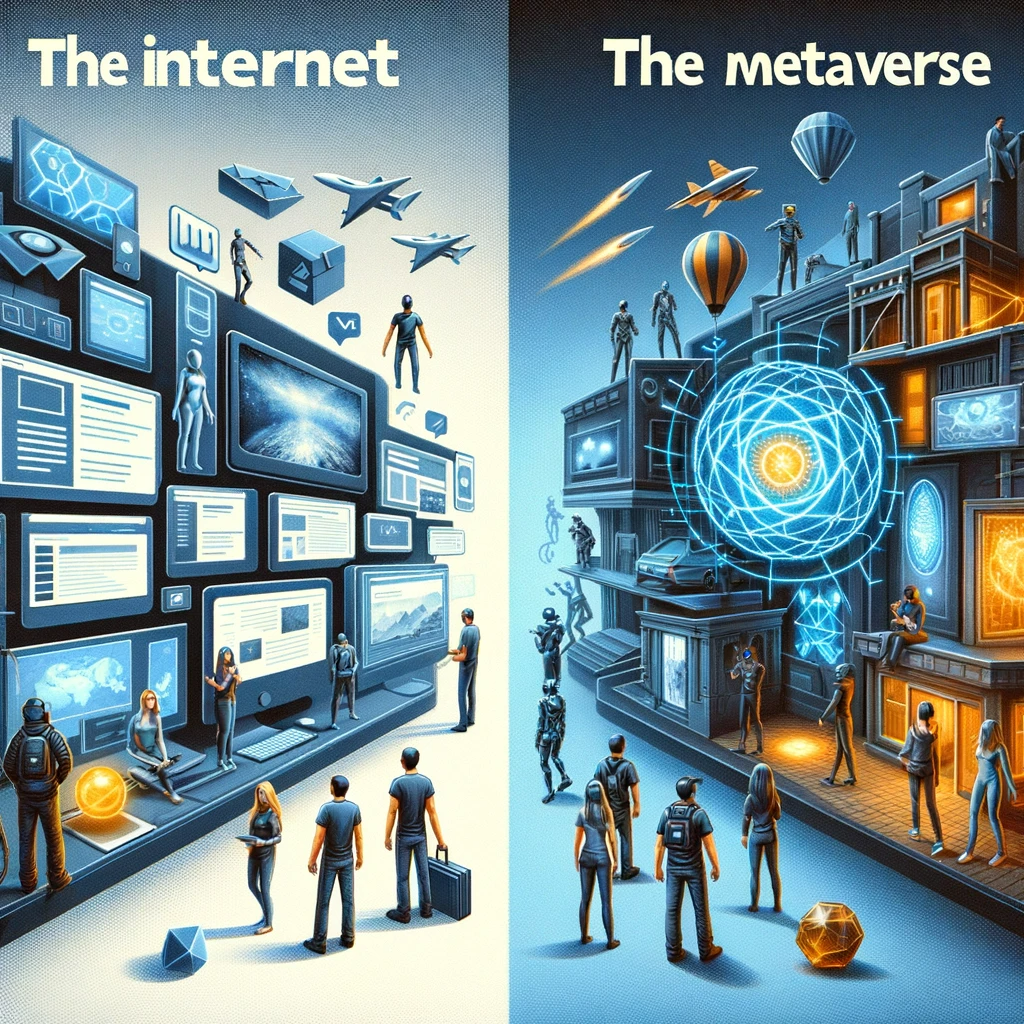The difference between the internet and the metaverse Guide
The difference between the internet and the metaverse can be understood in terms of their scope, interaction models, and the experiences they offer

- Nature and Scope:
- Internet: It is a vast network of interconnected computers, servers, and other electronic devices. It enables the sharing of information and communication globally. The internet is primarily a digital space for accessing and exchanging information through websites, emails, and various online platforms.
- Metaverse: Builds upon the foundation of the internet. It’s envisioned as a more immersive, 3D virtual space where users can interact in a simulated environment. The metaverse extends beyond traditional internet experiences by incorporating elements of virtual and augmented reality.
- User Experience:
- Internet: Users typically “browse” the internet. They interact with web pages, consume content, communicate via platforms like email or social networks, and perform transactions.
- Metaverse: Offers a more immersive experience where users can “live” within it to a degree. It’s not just about browsing content but about engaging in a virtual space that feels more lifelike, often through avatars.
- Technological Framework:
- Internet: Uses standard web technologies and protocols for data transmission, website hosting, and online communication.
- Metaverse: Integrates advanced technologies such as VR, AR, 3D graphics, and AI to create interactive and immersive environments.
- Applications and Use-Cases:
- Internet: Primarily used for information exchange, communication, e-commerce, entertainment, and educational purposes in a 2D interface.
- Metaverse: Expands to more immersive applications like virtual social interactions, 3D gaming environments (like Roblox and Minecraft), virtual workspaces, education, and virtual commerce.
- Development and Evolution:
- Internet: Has evolved through various stages, starting from simple text-based interfaces to the current complex web applications (part of the transition to Web 2.0).
- Metaverse: Is seen as a part of the next evolution of the internet (sometimes linked to Web 3.0). Web 3.0 focuses on a decentralized, blockchain-based internet, aiming to give users more control over their data and online interactions.
In summary, while the internet provides the infrastructure and the backbone for digital communication and information exchange, the metaverse represents an evolution towards more immersive, interactive, and 3D digital experiences. The metaverse doesn’t replace the internet; instead, it builds upon it, offering a new way to interact with technology and each other within digital spaces.





